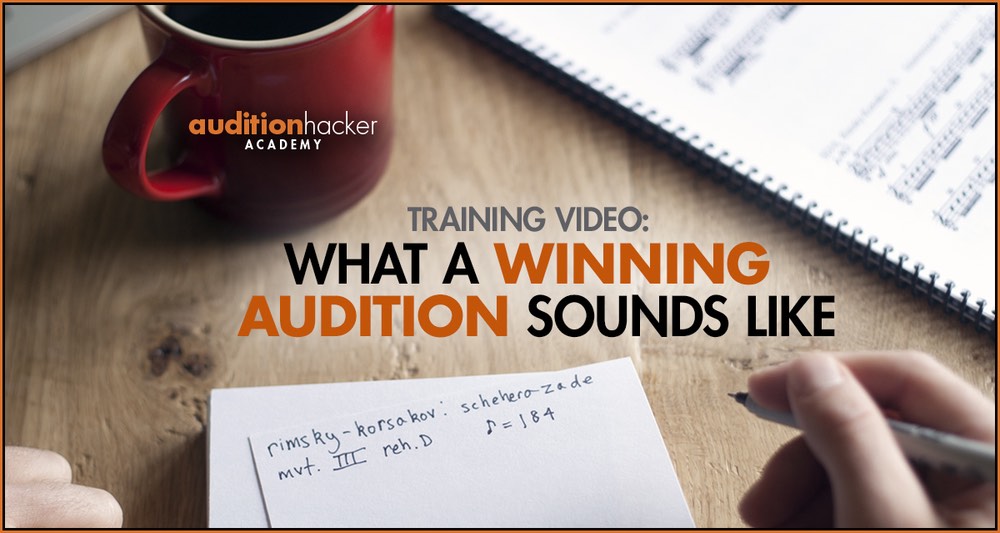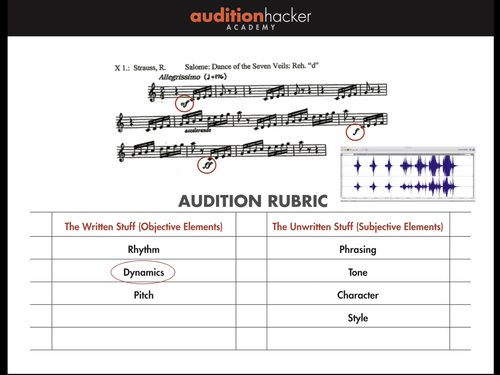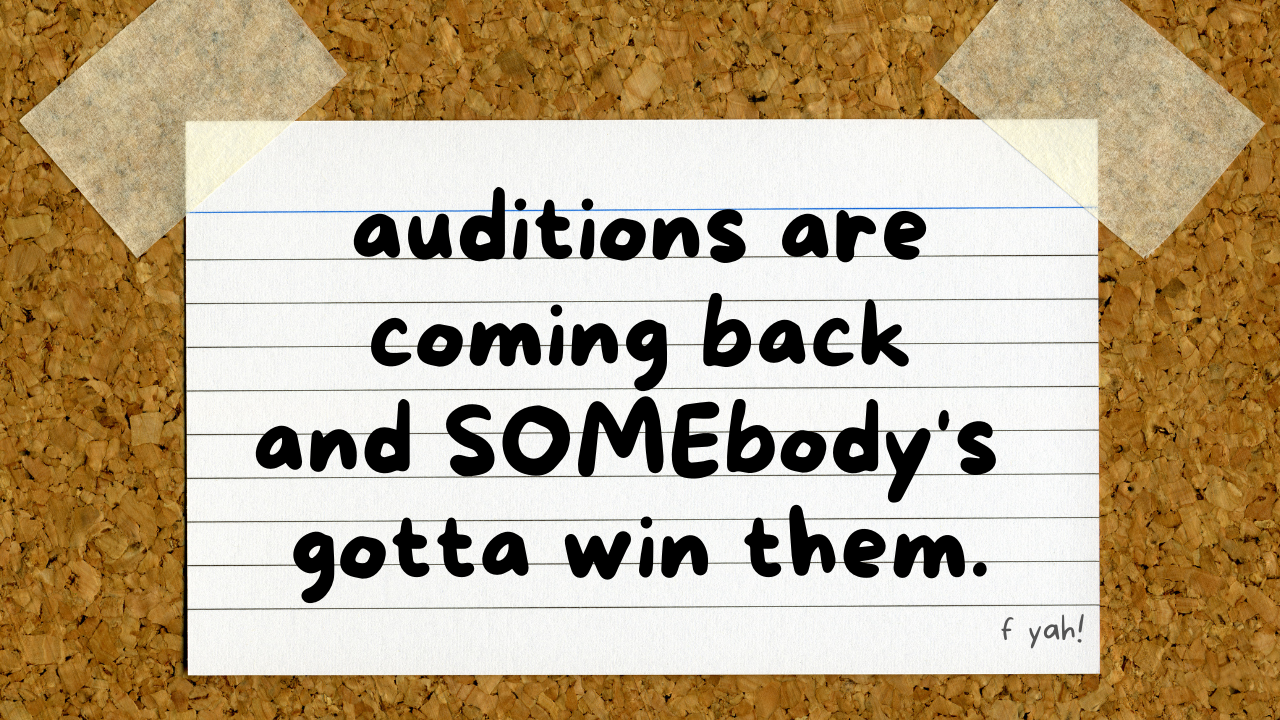4 years, 5 months, 26 days, and about 21 hours ago, i won a spot in the MET orchestra. 15 minutes before that, i flipped my recorder on, threw it in my bag, and got the whole thing on tape.
i don’t know about you, but i’ve never heard a winning audition besides my own.
oh, except for when i've judged MET auditions.
it would have made life a ton easier if i could have heard one. i could have used it for reference, to see how good it has to be. i could have heard what standard of rhythm i should shoot for, or how musical i needed to be.
a sneak peek at the audition rubric part of the video
i’m publishing mine today for you to hear.
well, some of it, at least.
it's all in the new training video, what a winning audition sounds like, and you can check it out by registering through this link:
here's how it's gonna help
if you know what a winning audition sounds like, then you can start thinking about the different things that the committee must be listening for. and then you can transfer that information to the practice room.
every member of every committee is always going to be different. there’s no magic way to play that perfectly pleases everyone. but the fact is that some candidates earn yes votes, and some don't. obviously, you want to earn the maximum number of those yes votes.
so what earns a yes vote?
while everyone on the committee has different priorities and opinions, they’re all working from the same basic playbook. everyone cares about rhythm, everyone cares about tone, phrasing, musicality, and a few other essential elements.
and those musical elements make up the basic fundamentals of how committee members grade. one person might grade more heavily on rhythm or note accuracy, while another might grade more heavily on phrasing and character. it’s your job as the candidate to USE this rubric while you’re preparing.
check it out.
today i'm publishing video 3 in the mini-course, how to advance at an orchestra audition 101 today, and it's called what a winning audition sounds like. it includes a bunch of excerpts from the recording of my winning MET audition, and it answers these questions:
what does a committee want to hear?
how can you make the committee fall in love with you (from the very first note)?
how do i transfer all that information to the practice room to prepare properly?
looking for an audition breakthrough?
here's my 5-step guide to constructing your preparation process and optimizing it for maximum results for any instrument.














i've worked with hundreds of musicians on audition preparation. and nothing - NOTHING - has been as effective and life-changing as when they start self-recording the right way.